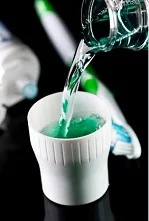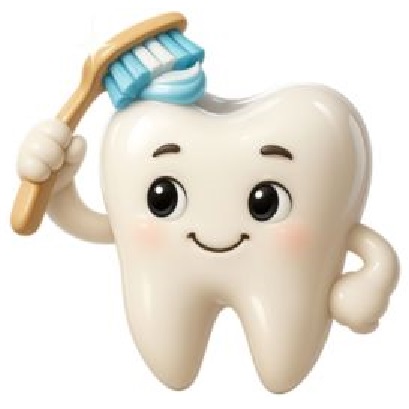
Mouthwash seems simple, doesn’t it? A quick swish, a fresh tingle, and off you go. But walk down the oral care aisle and it suddenly becomes a science nightmare — alcohol or alcohol-free, antiseptic or fluoride, whitening or just plain minty? No wonder people get confused.
In this guide, I’ll walk you through the main types of mouthwash, what they’re good for, and what to look out for — plus a lesser-known fact about how mouthwash might affect your blood pressure. I’ve also thrown in a few personal notes to help keep it real.
Types of Mouthwash: What Does What?
1. Antiseptic Mouthwash
Best for: Gum disease, plaque, bacteria, smelly breath
Main ingredients: Chlorhexidine, cetylpyridinium chloride (CPC), essential oils, sometimes alcohol
This type really goes after the bacteria — great if you’ve been told you have gingivitis or bleeding gums. I used this kind years ago after a rough spell with sensitive, bleeding gums. It helped — but it left my mouth feeling like a chemistry lab, and the taste lingered for hours.
Watch out: Long-term use (especially those with chlorhexidine) can stain teeth, dull your tastebuds, and dry your mouth if it contains alcohol. Probably not one for daily use unless your dentist says otherwise.
2. Fluoride Mouthwash
Best for: Strengthening enamel, preventing cavities
Main ingredient: Sodium fluoride
This is a good daily choice if you’re cavity-prone, or your teeth feel a bit “chalky” from time to time. It’s not a bacteria-killer, but it strengthens enamel. It’s usually gentle and doesn’t sting, though do keep it away from kids who might be tempted to swallow it. Fluoride’s safe — but only in the right amounts.
3. Breath Freshening Mouthwash
Best for: A quick minty pick-me-up
Main ingredient: Flavourings, menthol, sometimes alcohol
Let’s be honest — this is mostly perfume for your mouth. Handy before a meeting, but it won’t do much for plaque or gum health. Still, if it helps you feel more confident, there’s no harm in keeping a bottle in your bathroom or car. I used to keep one in my glovebox, mostly for social emergencies!
4. Alcohol-Free Mouthwash
Best for: Dry mouths, kids, people sensitive to burning
Main ingredients: CPC, essential oils, xylitol, aloe vera
This one’s my go-to now. After trying a few burning-hot rinses that made my tongue feel raw, I found that alcohol-free versions do the job without making my eyes water. They’re also great if you’re prone to mouth ulcers.
5. Mouthwash for Dry Mouth
Best for: People who don’t make enough saliva
Main ingredients: Xylitol, aloe, enzymes, moisturisers like glycerin
If your mouth feels dry often — due to meds, illness, or just age — this type can soothe things nicely. I’ve had times when I woke up feeling like I’d eaten a box of crackers. A dry mouth rinse helped ease that sandpaper feeling and stopped my tongue sticking to the roof of my mouth (not an exaggeration!).
6. Whitening Mouthwash
Best for: Mild stain removal or helping whitening toothpaste
Main ingredients: Hydrogen peroxide or carbamide peroxide
These aren’t magic — they won’t bleach your teeth, but they can help reduce surface stains over time. Think of it as maintenance, not transformation. Some can cause sensitivity, so go easy if your teeth already wince at cold drinks.
Quick Comparison: Best Mouthwash for Your Needs
| Need | Best Mouthwash Type |
|---|---|
| Gum Disease | Antiseptic (short-term use) |
| Cavity Prevention | Fluoride |
| Dry Mouth | Moisturising / Alcohol-Free |
| Fresh Breath | Breath Freshening or Antiseptic |
| Whitening Support | Whitening Mouthwash |
| Sensitivity | Alcohol-Free, Fluoride |
The New Angle: Can Mouthwash Affect Blood Pressure?
Now this is going to sound like a complete negative when it comes to your dental routine, but here’s something you won’t find on most mouthwash bottles. Some studies have suggested that using strong antiseptic mouthwash, too often, can actually lower the number of friendly bacteria in your mouth — the very ones that help make nitric oxide, a chemical which helps regulate and support healthy blood pressure.
The link isn’t totally nailed down, but it’s worth knowing. If you’re already managing high blood pressure, this might be a reason to avoid blasting your mouth with strong antiseptics every day. A simple fluoride or alcohol-free rinse could be a better long-term choice.
Final Thoughts: Keep It Simple, Keep It Sensible
If you’ve ever stood frozen in front of a shelf of mouthwashes, you’re not alone. My best advice? Start simple. Unless your dentist has told you otherwise, a fluoride or alcohol-free rinse will do the job for most people.
Don’t get swayed by promises of “miracle whitening” or “24-hour protection.” Good oral hygiene starts with brushing and flossing correctly and being consistent in your routine. Mouthwash is a nice bonus — not a miracle cure.
And if one kind doesn’t work for you — maybe it burns, dries you out, or tastes like bonfire smoke — try something else. You’re allowed a little bit of trial and error.
FAQs
Q: Should I use mouthwash before or after brushing?
A: After brushing is ideal, unless your dentist says otherwise. Mouthwash helps rinse away loosened debris and adds a fluoride or antibacterial boost to your routine.
Q: Can I use mouthwash every day?
A: Yes — as long as it’s not a heavy antiseptic designed for short-term use. Daily use of alcohol-free or fluoride rinses is safe and often recommended.
Q: Does mouthwash replace brushing or flossing?
A: Definitely not. Mouthwash is a helpful sidekick, not a substitute. Think of it as the rinse cycle after the main wash — nice to have, but not the main event.
Pearly’s Tips on Choosing the Right Mouthwash

There’s no one-size-fits-all when it comes to mouthwash. Always consider your specific dental needs and consult your dentist if you’re unsure. For most people, a simple fluoride or alcohol-free option is a safe and effective choice for daily use. Choosing the best mouthwash for oral health can help you maintain a healthy smile and support your overall dental hygiene routine.
PearlyPegs.com – Helping you take better care of your mouth, one rinse at a time.

